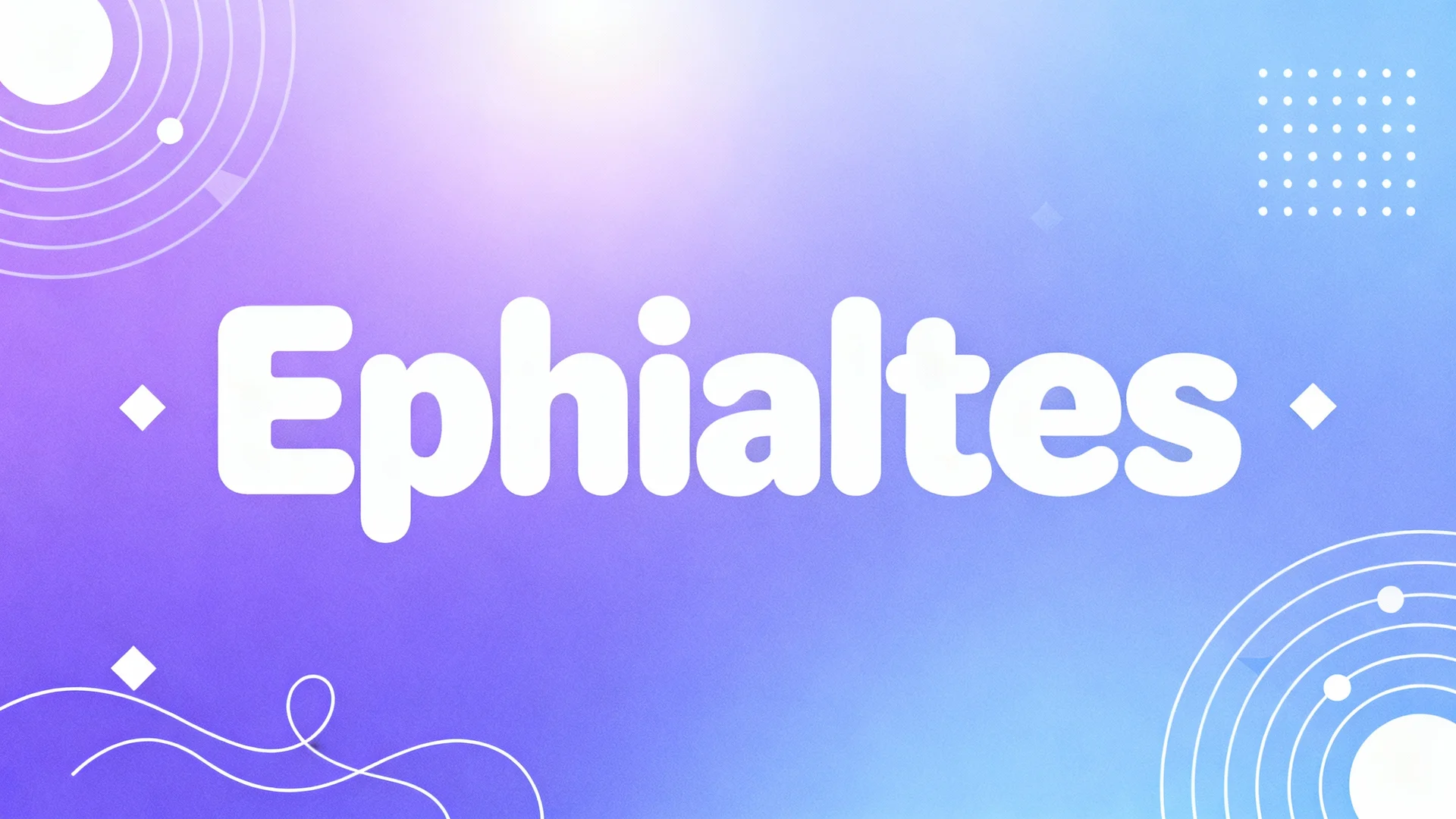
Loading...
Checking authentication...
Practice your pronunciation with interactive games and challenges.
Start PlayingThe word Ephialtes finds its origins in ancient Greek, where it was associated with vivid, sometimes terrifying, experiences. Its phonetic lineage can be traced back to the classical language, where the sounds and symbolism behind the word carried a distinct cultural weight. In some literary texts, Ephialtes was woven into narratives involving ominous omens and night terrors-a possible precursor to the modern concept of a “nightmare.”
Did you know? Some scholars suggest that the very term “nightmare” is linked to the ancient roots found in Ephialtes, hinting at the word’s power to evoke fear and suspense across centuries.
Interestingly, Ephialtes also has historical connections to infamous figures. One notable bearer of the name was Ephialtes of Trachis, whose betrayal in the battle of Thermopylae has made him synonymous with treachery in some historical accounts. This dual usage-one steeped in mythological fear and the other in human infamy-reveals the complex layers of meaning a single word can accumulate over time.
Exploring the ancient Greek etymology of Ephialtes unveils a tapestry of meanings, from the supernatural to the profoundly human. This rich background provides a perfect entry point for linguistic detectives aiming to understand how language evolves alongside cultural and historical shifts.
As language spreads from one culture to another, words frequently adapt in form and nuance. The linguistic journey of Ephialtes is a prime example of this phenomenon. Over time, its pronunciation and associated imagery moved beyond the confines of ancient Greek, influencing Latin texts and even seeping into modern languages in indirect ways.
For English learners, understanding the transformation of such words can be both enlightening and practical. The phonetic shifts and adoption of similar-sounding cognates across languages lend insight into broader linguistic trends. Consider, for example, how subtle changes in vowel emphasis and consonant articulation can lead to entirely new meanings while maintaining echoes of the original word’s spirit.
Learning to pronounce challenging words is an important step in mastering language. For additional help, check out our Pronunciation guide for Ephialtes, which offers detailed sound breakdowns and practical tips.
The evolution of Ephialtes is enriched by the concept of a “word family,” where similar words share etymological roots. By examining related terms and cognates derived from the same ancient origins, learners can develop a deeper understanding of how context and historical usage shape modern pronunciation and meaning.
Usage Tip: When encountering challenging words like Ephialtes, try associating the word with its historical narrative. This makes it easier to recall both pronunciation and context. Experiment by using the word in sentences that reference its dual heritage of myth and history.
While Ephialtes might seem like a relic of the past, its significance persists in educational and cultural contexts today. For language enthusiasts, the word serves as a bridge between ancient narratives and contemporary linguistic practices. Experts in linguistics and cultural studies emphasize that revisiting such terms can refine our understanding of language’s evolution and our own methods of communication.
In today’s global culture, where cross-cultural communication is valued, appreciating the nuances of words like Ephialtes can help enrich conversations about history, literature, and even current events. It reminds us that language is not static-it is a living entity influenced by the passage of time and the exchange of ideas.
For those who are keen on mastering these pronunciation subtleties, diving deeper into practical examples can be immensely helpful. We invite you to Watch our video on how to pronounce Ephialtes, where experts break down the sounds and provide actionable insights for learners.
One common misconception is that every ancient word must be archaic in its usage. However, the story of Ephialtes shows us that words can be repurposed and reinterpreted long after their origin. While some may assume that the term solely refers to myth or betrayal, its contemporary usage highlights broader themes such as fear, transformation, and memory.
This flexibility in meaning underscores the importance of approaching language with an open mind. As you continue your journey in linguistic mastery, remember that every word-even one as layered as Ephialtes-has hidden depths waiting to be explored.
The investigation into Ephialtes invites us to embrace the rich interplay between language, history, and culture. What began as an examination of an ancient term has evolved into an exploration of narrative, identity, and the ever-changing landscape of communication.
As you ponder the legacy of Ephialtes, consider how its shifting meanings over time mirror the dynamic nature of language itself. Whether you are a language enthusiast, a student eager to learn more about ancient words, or simply someone fascinated by the interplay of myth and modernity, there is always more to discover. What other words might be hiding layers of history, just waiting for a curious mind to unlock their secrets?
Call to Action: Dive deeper into the fascinating world of ancient etymology and join our community of linguistic detectives. Share your insights and experiences, and let the story of Ephialtes inspire your next language adventure.